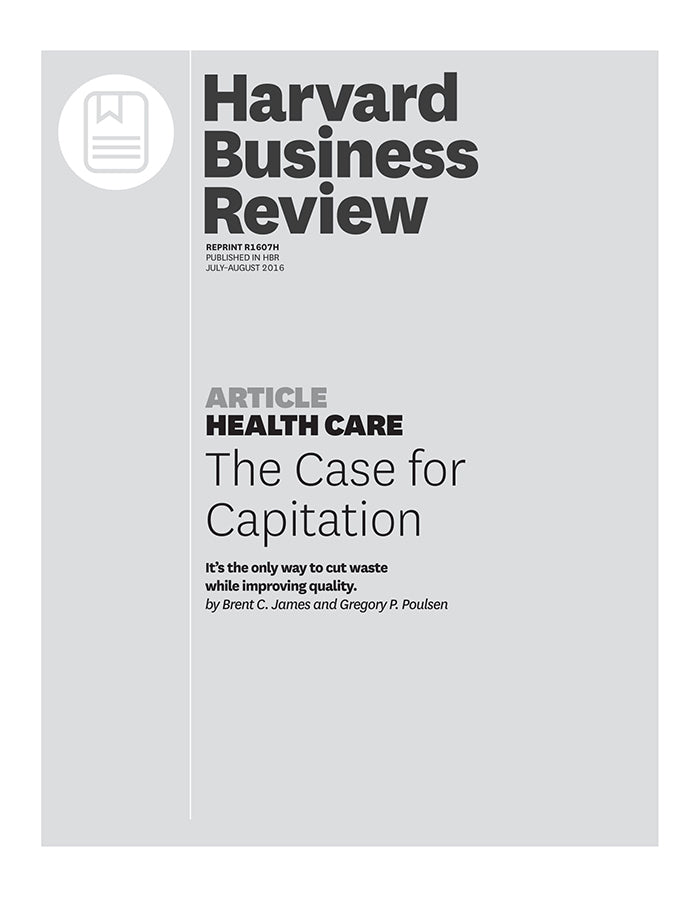The Case for Capitation
受取状況を読み込めませんでした
Recent studies suggest that at least 35%--and maybe over 50%--of all health care spending in the U.S. is wasted on inadequate, unnecessary, and inefficient care and suboptimal business processes. But efforts to get rid of that waste face a huge challenge: Under current payment methods, the providers who develop more cost-effective approaches don't receive any of the savings. Instead, the money goes mainly to insurers. The providers, who are paid for the volume of services delivered, end up actually losing money, which undermines their finances and their ability to invest in more cost-saving innovations. To address this quandary, say two top execs from the nonprofit Intermountain Healthcare system, we need a different way to pay for health care: "population-based payment." PBP gives care delivery groups a fixed per-person payment that covers all of an individual's health care services in a given year. Under it, providers benefit from the savings of all efforts to attack waste, encouraging them to do it more. And though PBP may sound similar to the HMOs of the 1990s, there are significant twists: Payments go directly to care delivery groups, and patients' physicians--not insurance companies--assume responsibility for overseeing and managing the cost of treatment. Provider groups are also required to meet quality standards that further protect patients. By applying PBP in just part of its system, Intermountain, which serves 2 million people, has been able to chop $688 million in annual waste and bring total costs down 13%.
【書誌情報】
ページ数:11ページ
サイズ:A4
商品番号:HBSP-R1607H
発行日:2016/7/1
登録日:2016/7/11


